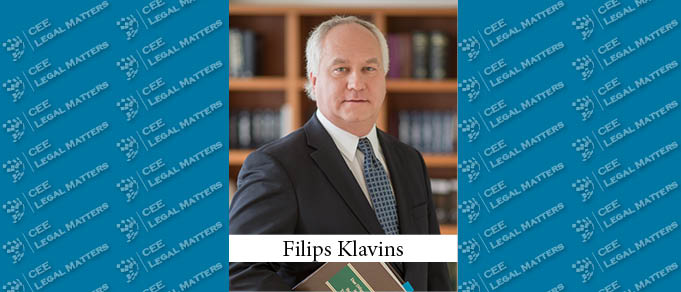“Without question,” says Filips Klavins, Senior Partner at Ellex Klavins in Riga, “the biggest news was that last week [Friday, February 21] the Financial Action Task Force decided not to put Latvia on its Gray money-laundering List.” Latvia has been under monitoring by Moneyval and the FATF for potentially allowing space for conducting money laundering in Latvia. “The countries that find themselves on the Gray List are the likes of North Korea,” Klavins says. “Not the company you’d want to find yourself in.” Still, he smiles, “the country has been working really hard to avoid that, and we’ve done it.”
Moneyval also reported positively about Latvia in January, and Klavins reports that Standard & Poor’s recently gave the country an A+ rating -- the highest in Latvia's history.
“Of course this doesn’t mean that we can let our guard down,” Klavins says, but he points out that the controls put into place to prevent money laundering and terrorist financing are strong and that “some of the banks have even gone a bit overboard with them, erring on the side of caution especially while on-boarding new clients and getting to know them.“ Also, he reports that the Financial and Capital Markets Commission (the financial markets regulator of Latvia), and the Central Bank of Latvia are both under new heads and that this will “increase the confidence in these institutions which will certainly attract new investors and continue to build on the current high level of confidence in the country.“
In other news, Klavins reports that the new Economic Court of Latvia is scheduled to begin operating by January 2021 and that changes to legislation are being made now in order to make that happen. “The idea behind the court is to have expert judges that are specifically trained to take on economically complex cases.“
Klavins reports that Latvia’s Cabinet of Ministers has adopted a new way to calculate cadastral values. “The new formulas are rather complex but should lead to a more nuanced approach to real estate taxation. It will take some time for the market to adapt to this – seeing as how it will regulate the entirety of the real estate sector, both residential and commercial.“
Finally, Klavins reports that the real estate sector is, at the moment, particularly strong. “We’re experiencing a lot of traction in this sector, especially with regards to office buildings and shopping centers.” Meanwhile, he reports that the country’s energy sector is undergoing some changes. “The Conexus Baltic Grid – Latvia’s natural gas transmission and storage operator – is undergoing a change in its shareholder structure,” he reports, noting that two of its current shareholders, the Marguerite fund and Gazprom, are set to finalize the sale of their stakes. “What we’re waiting for now is to hear from the government whether or not it will use its right of first refusal and allow for the stakes to be sold to private parties, or if it decides to become a larger shareholder in its own right.” Klavins reports that the government has made no official announcements yet and says that, if it decides to pass up on Conexus shares, any new owner would have to go through a national security clearance before the transaction can be finalized, given the strategic importance of the company.






















